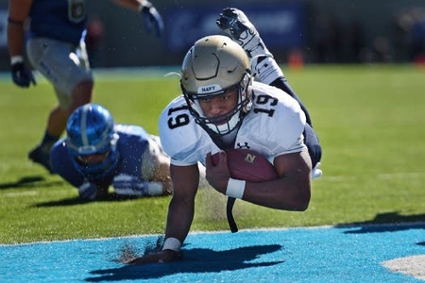After spending the weekend with some of my raternity rothers, I realized just how much of an influence fantasy sports have on the real games themselves. Without having a fantasy football team to tend to, there’s no way I would watch half the games I did this past weekend but I feel like I still don’t know enough. How can I learn more about fantasy sports?
Fantasy sports are massively popular. In the United States alone, 59.3 million people play some type of fantasy sports game. As your older relative’s confusion suggests, fantasy sports have not been with us for that long. Sports historians tell us that fantasy sports got their start in the form of “rotisserie baseball” in the 1980s, though there is evidence of other forms of sports gaming stretching as far back as the 1960s. The 80s version focused on baseball, in which statistics are relatively easy to track, and featured rules that would look fairly familiar to modern fantasy sports fans. Players drafted a team, tracked stats, and totalled up their scores.
By the 1990s, there were fantasy sports formats for lots of popular leagues, including the NFL. And beginning around 1995, those leagues began finding their way onto the internet – where their popularity exploded. Yahoo and other platforms made fantasy sports easier to play for casual fans – no longer was it necessary to tally up scores by hand. And, significantly, both sports news organizations (like ESPN) and sports leagues themselves (like the NFL) got in on the act. ESPN has since surpassed Yahoo as the top destination for fantasy sports, but both platforms feature more than 6 million players.
With ESPN and the NFL offering fantasy football leagues, it was a matter of time before league-sponsored programs and ESPN programming hours began to be dedicated to fantasy football. Today, ESPN employs writers who cover nothing but fantasy, offers mock drafts and advice, and covers fantasy statistics on TV – all for a variety of sports.
The benefit to the leagues, of course, is the added interest in the sport. With traditional sports fandom, fans are drawn to one team’s games. But when their own “team” features players from all over the league, every game matters. That’s good for ratings, statistics prove: Nielsen ratings improve for games with more fantasy starters in them.
Not all players, however, agree that the change is a good one. Athletes are the experts here, and some of them claim that fantasy football causes fans to view them with less compassion. Athletes work hard to maintain their fitness and protect themselves from injury, and they lose out financially and competitively when they get hurt. Yet fantasy football fans are capable of acting personally aggrieved when a member of “their” team misses time on the field, say players like Richard Sherman of the Seattle Seahawks. Rather than hope for the best playing future for individual players, some fantasy football fans would rather see a player play through an injury for the short-term benefit of a fantasy football team.
One does not have to watch fantasy football programming or be a player to notice the impact of fantasy sports on the game. In baseball, fantasy sports encouraged the stats-obsessed subculture of sabermetrics. Fantasy baseball was one way that statheads got together, and many of our modern advanced baseball statistics came out of efforts to win competitive leagues. Some of the 1980s’ and 90s’ best fantasy baseball managers went on to serve as advisors and general managers on real Major League teams, and modern baseball respects sabermetrics and analysis in a way that the pen-and-paper fantasy gurus of the 80s could only have dreamed of.
And then there are the spin-offs: so-called “daily fantasy” games, a form of online gambling, have exploded in popularity in a very short time. DraftKings, a popular daily fantasy company, saw its value skyrocket from $3 million in 2013 to an incredible $105 million 2015, according to Forbes.
Ultimately, of course, how fantasy sports affects your experience as a fan depends to an extent on your own relationship with the games. If you are in a league that gives out championship trophies and fantasy football rings, you will no doubt see much of football’s events and culture through the prism of fantasy sports. But even for non-players – like your older relative – fantasy sports’ impact is unavoidable. From the pre-game shows and programming schedules on popular sports networks to the very way that front offices are run, fantasy sports have changed real sports forever.
“Just play. Have fun. Enjoy the game.” – Michael Jordan
(John Regan, former Director of Sales, for equity research).


